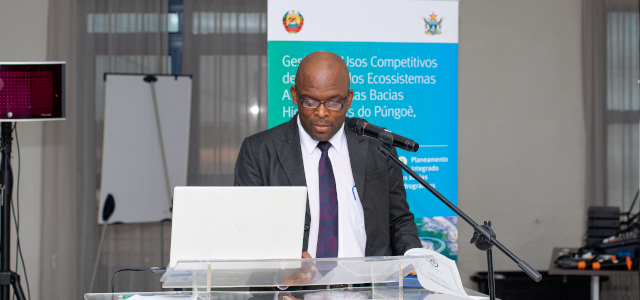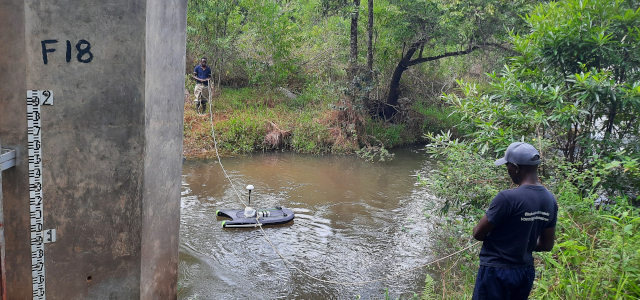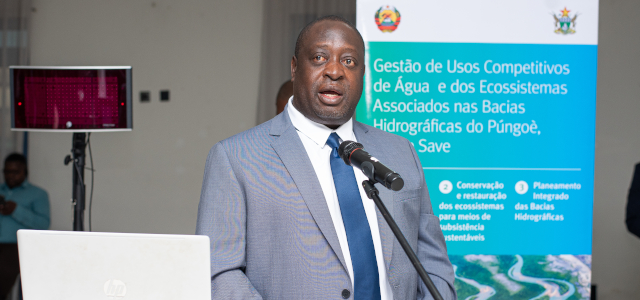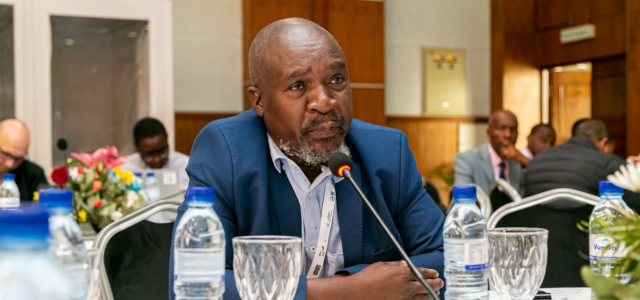The progress was recorded under the Global Environment Facility (GEF) - funded Management of Competing Water Uses and Associated Ecosystems in Pungwe, Buzi, and Save Basins (IUCN- GEF BUPUSA) project, being implemented in the basins by the International Union for Conservation of Nature (IUCN), with Global Water Partnership Southern Africa (GWPSA) as the regional executing Partner supporting the two governments.
A mid-term review commissioned by the IUCN established that the project has so far successfully responded to challenges within the basins and member states and stakeholder needs, advancing towards improved water security, climate change resilience, and sustainable livelihoods.
“IUCN is pleased with the results thus far and commends the project management unit for its proactive, thorough, and committed approach to executing the project,” said Mr Tariro Saruchera, Senior Programme Officer Water and Wetlands Programme for IUCN East and Southern Africa.”
The four-year project focuses on strengthening water-related risk management through the reinforcement of monitoring and enhancing ecosystem services through quantitative water management.
The project supported the finalisation of the negotiations that led to the signing of the Save Water Sharing Agreement, the BUPUSA Establishment and Hosting Agreements, which together with the Pungwe (2016) and Buzi (2019) Water Sharing Agreements, culminated in the establishment of the BUPUSA Watercourses Commission (BUPUSACOM) in May 2023. The Commission oversees the planning, development, and management of the water resources within the three basins.

“SADC welcomes the first tri-basin institution in the region - BUPUSACOM, to the family of shared watercourse institutions in the region”, Dr. Patrice Kabeya, Senior Programme Officer – Water, SADC Secretariat
The project is supporting the governments of Mozambique and Zimbabwe to increase preparedness for floods and droughts, as a means of reducing the impact of the climate extremes in the tri-basin.
The project has installed, within the tri-basin, hydro-meteorological equipment to provide real-time, accurate, and practicable measurements of water flow which inform flood forecasting and early warning systems (FFEWS), thereby aiding decision-makers to alert the communities about natural disasters, particularly floods.

Technicians take flow measurements along the Buzi River using hydrometeorological equipment procured under the project
Meanwhile, technicians within the member states are being continuously trained on data collection, installation, operation, and maintenance of the hydrometric equipment to ensure sustainability after installation and upon project completion.
As part of drought mitigation, the project began drought risk assessments and validation within the BUPUSA in 2023, to map drought hotspots for possible interventions in hard-hit communities. The drought vulnerability studies will contribute to strengthening water-related risk management, through the reinforcement of monitoring systems, the development of real-time operational tools, and the empowerment of communities in their drought mitigation autonomy.
Consultations for Drought Risk Vulnerability Assessments being conducted through focus group discussions in Takavarasha community in Chivi District, Save River Basin in Zimbabwe
The BUPUSA basins have plenty of water resources, which are yet to be fully developed. An Environmental Flows (EFlows) assessment commissioned by the two governments under the project in the Pungwe basin established that the levels of water use in the basin were below the annual average yield and that there is scope to develop the water resources of the basin without seriously comprising ecosystem functions and biodiversity. The assessment determined how different aspects of the socioeconomic & ecosystem context react to the basin’s flows and levels of water utilisation.
“The study recommended that water-resource development in the Pungwe Water-Sharing Agreement be combined with investments in environmental protection and sustainable utilization of natural resources”, said Dr Loreen Katiyo, GWPSA- Africa’s Transboundary Water Governance and Environmental Specialist.

“The EFLows assessment will inform negotiations around clauses around transboundary water allocation and ecological flows in the Pungwe basin as provided by the Pungwe Water-Sharing Agreement", says Mr Elisha Madamombe, BUPUSACOM Interim Executive Secretary and IUCN-GEF BUPUSA Regional Project Coordinator
The BUPUSA river basins face similar challenges, mainly, changes in flow regime, water quality deterioration, flood & drought, land degradation, loss of biodiversity, reduced availability of water, and sedimentation. To provide a shared understanding of the basins, a transboundary diagnostic analysis (TDA) was developed. The TDA, whose text was finalised in 2023, will inform the Strategic Action Program (SAP) and the National Action Plans (NAPs). The SAP consists of priority projects and investments to address the problems identified by the TDA at the transboundary level and is set to mobilise resources for water development, while the NAPs will address the gaps at the national level and provide interventions geared towards improving IWRM. The SAP and NAPs development process was launched at the end of 2023 and is expected to be completed by the year-end. The TDA is expected to unlock investments for infrastructure development, irrigation, flood control, and management and also address some environmental concerns in the basins, while the SAP is expected to mobilise resources for water development.
Knowledge generation and sharing are critical in ensuring that investments achieve a lasting impact in safeguarding the global environment. The project has done well in transboundary knowledge sharing and learning, including exchange visits to other basins and providing participation at conferences such as the Stockholm World Water Week. The project has also established online knowledge-sharing channels where the project's progress is showcased, including the BUPUSACOM website and a web page under the GEF IWLearn knowledge platform.
The project, guided by the Gender Equality and Social Inclusion (GESI) Action Plan, is implementing a gender transformational approach toward promoting inclusive and equitable development within the BUPUSA basins and their surrounding areas.
“We attribute the success of the project to the funding from GEF, the effective collaboration between IUCN and GWPSA, the long-standing, strong relations and trust between the two member states, and efficient engagement of stakeholders, who all assumed ownership of the project and commitment to transboundary cooperation,” said Engineer Gilbert Mawere, Director of Water Resources Development and Utilisation in Zimbabwe’s Ministry of Water.

Engineer Gilbert Mawere commends the project’s progress since its inception
Both IUCN and GWPSA have pledged their commitment to supporting BUPUSACOM and its member states in the completion of the project and securing additional resources to continue the impactful work in the three basins including supporting the commission in implementing its roadmap.
Cover Photo Credits: Timo Arnall
